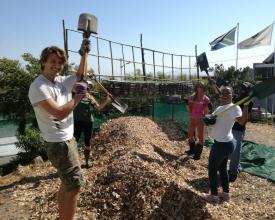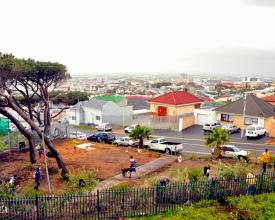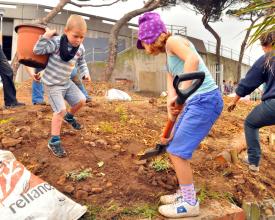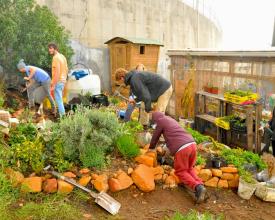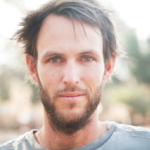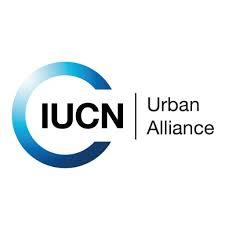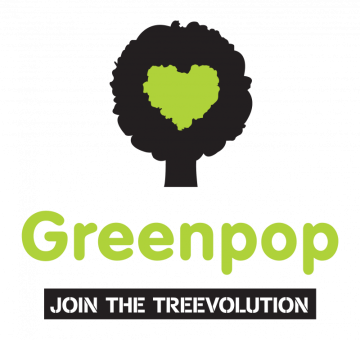
Turning unused public space into an Eco-Hub for Education
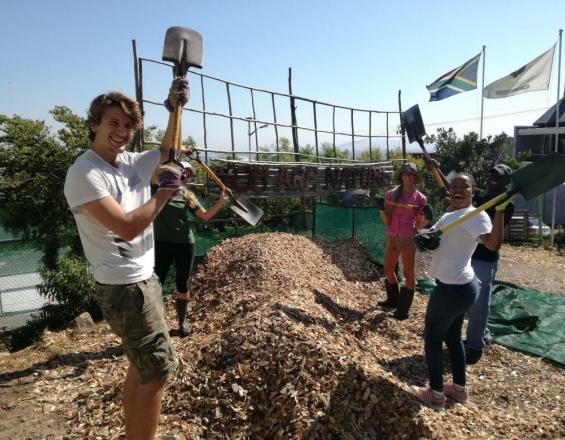
Greenpop, a Cape Town-based NPO, focused on reconnecting people with nature, transformed the misused space of a local primary school into a nursery for their plants used at greening events. The nursery eventually evolved into a workshop and education hub with a focus on urban greening.
Conversion of the area began in 2012 as Greenpop searched for a place to store their urban greening plants. The space had long been plagued with illegal dumping, drug and alcohol abuse and crime. The school agreed that in exchange for maintaining and renovating the area, it could be used as a hub to keep all of Greenpop’s plants and tools.
The barren urban land was transformed into a multipurpose, lush nursery that not only stores the plants for Greenpop’s Fynbos planting program, but also serves as a hub for eco-education in the wider Cape Town community. It welcomes people to come together and learn important skills in urban greening, and how communities can use what they have around them for improving conditions for our planet.
Impacts
The Eco-Educational Hub has served as a space to both aid Greenpop in completing their mission to regreen the planet, as this is where the plants for the events are kept, as well as serving as a place for people to gather, feel welcome and learn about what Greenpop does:
-
Education around urban greening and using public spaces in innovative ways.
-
Education around locally-indigenous plant species and how to conserve them.
-
Examples of upcycling throughout the Eco-Educational Hub, including the building materials used to make the Greenhouse, old containers used for tool storage and office space, and continuous re-use of plant pots and bags that are still intact.
-
Regreening of an urban space that was neglected and causing issues for the surrounding community.
-
A place for Greenpop to gather members of the community and effectively engage with people around eco-education.

